Insulating your swimming pool pipes is one great way to combat the cold weather during the winter season to protect your pipes from freezing. But how do you insulate them? In this article, we have asked the experts and scoured the internet, and we will teach you some simple steps that you can do to keep those pool channels toasty during frigid days.
Keeping pool pipes insulated is very important, especially if the weather is freezing. What you can do to insulate pipes is wrap insulating foam and insulating tape around them, especially from the pressure breaker where the water is being distributed from your main water supply.
Are you interested to learn more techniques and related questions about insulating your pipes? Stick around as we discuss all of those and give answers to questions like: does foam pipe insulation burn, what is the best insulation for outside pipes, can you insulate pipes with pool noodles, and more.
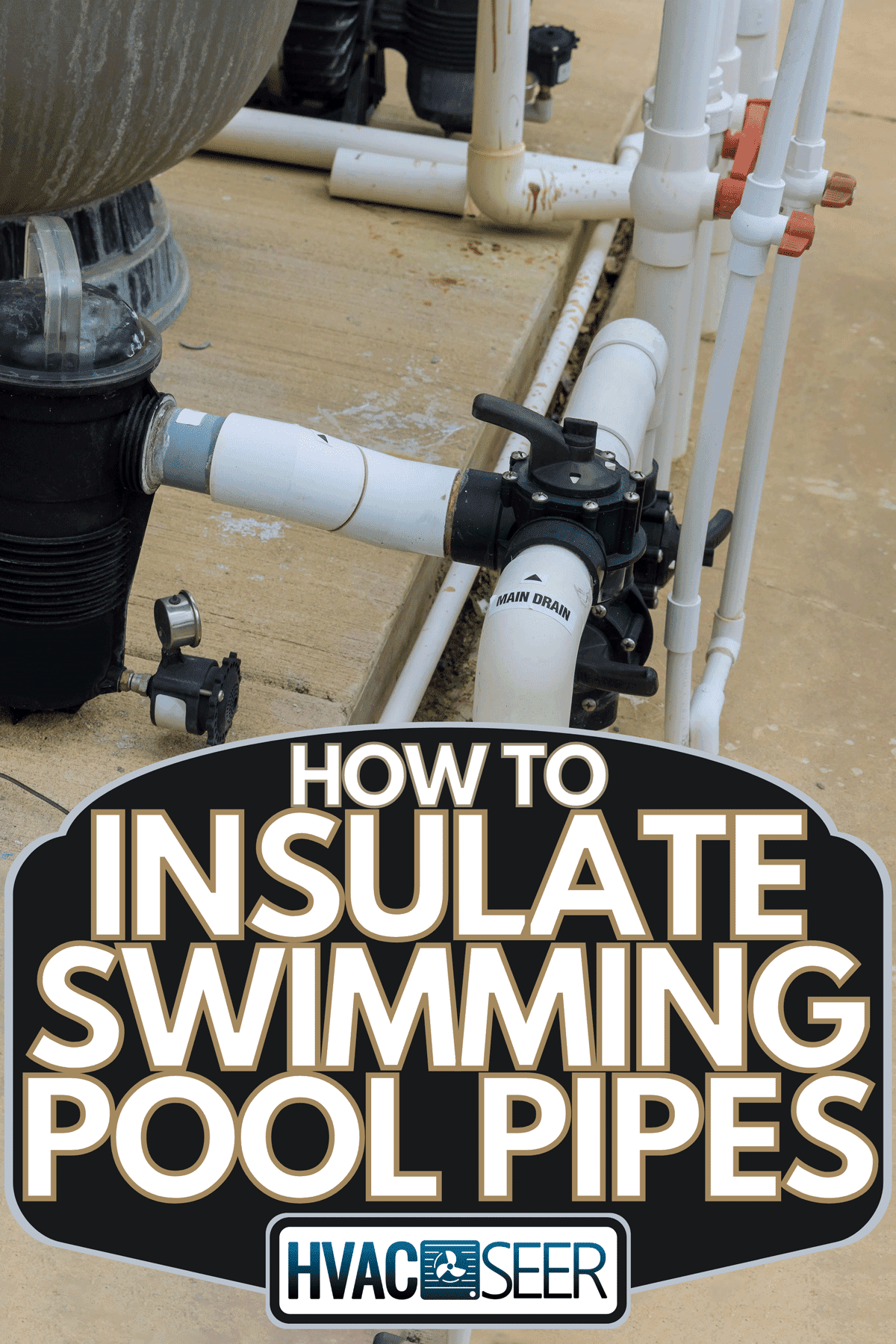
How do you insulate pool pipes from freezing
When insulating your pipes, you should start by turning the water off on the pressure vacuum breaker. In some cases, this is the main irrigation supply in your house. If this is the case, it would be best to warn the tenants of your house that there would be some slight water interruption during the process.
You would then choose the pipe that directly supplies your pool. After that, you need to turn the valve off as you would need to drain the water that is already in those pipes (don't worry about the water streaming out as the main valve is already off, this is only excess that has already entered the pool pipe).
The next step is to open the bleeder valve. This is usually located just beneath the valve to the main pool pipes. Take off thevalve cape by unscrewing it with your hands counterclockwise. Then, you will need a flat head for the grooves of the valve. Turn the groove counterclockwise to relieve the pressure on the vacuum breaker.
This will help to prevent the water from freezing by avoiding build-up. Frozen pipes can also burst from the pressure of water being stuck in the; thiss method will also prevent that. This also helps the valve from failing if and when it freezes.
Once you have secured the valves, wrap the exposed pool pipes with foam insulators. The size of the foam will depend on the size of your pipes. There will be markings along the pipes that indicate the size of your pipe; look for those as reference.
After wrapping the pipes with foam insulators, proceed on wrapping them with at least 10-millimeter insulating tapes. If you live up north, a thicker tape is recommended. For more intense weather, you can add some PVB insulated covers to help keep your pipes warm.
If you don't want to do this by yourself, you can always hire a professional service to do it for you. In this way, you can be sure that the process is done well and properly. This would also help you save time and energy.
Can you wrap pool pipes?
Yes, you can wrap pool pipes. It is the main way of insulating them. Frozen pool pipes can be very difficult to deal with. According to the laws of physics, if the water in your pipes freezes even just up to 10%, it would be enough to cause cracks in your pipes, pumps, filters, heaters, skimmers, etc.
These would be more expensive repairs and replacements compared to having your pipes covered and wrapped with insulating foam and tape. This can also make your water bill higher as water would be running or leaking from the pipes because of the cracks. In extreme cases, if your pump is affected, you can even experience complete water interruption.
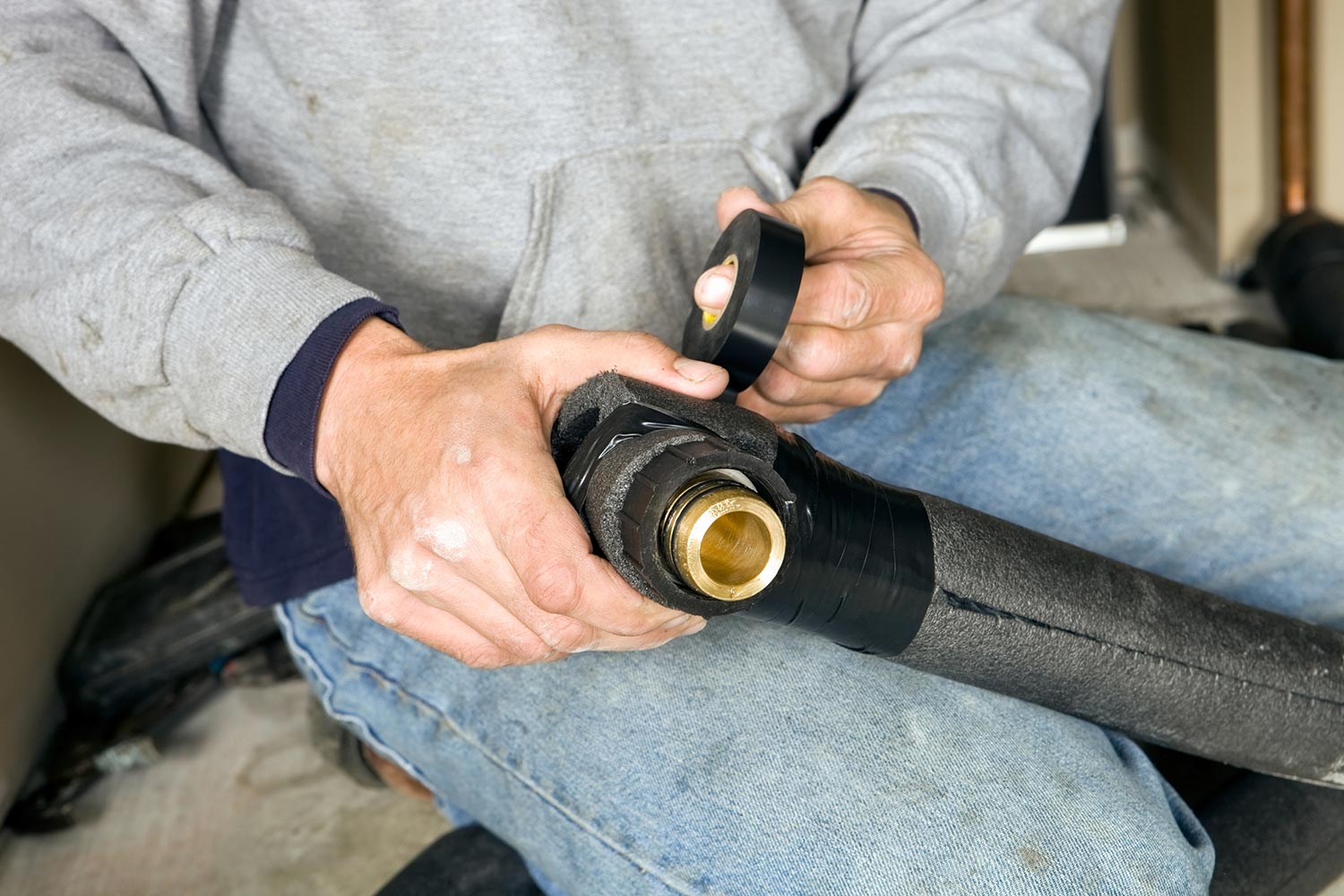
If this happens to you in the middle of a winter storm, it would be very difficult as plumbing services would be very scarce to source during this time. And, during the offseason of pool use, you might not even notice the damage. To prevent any hassle, make sure to have your pool pipes insulated.
Can you insulate pipes with pool noodles?
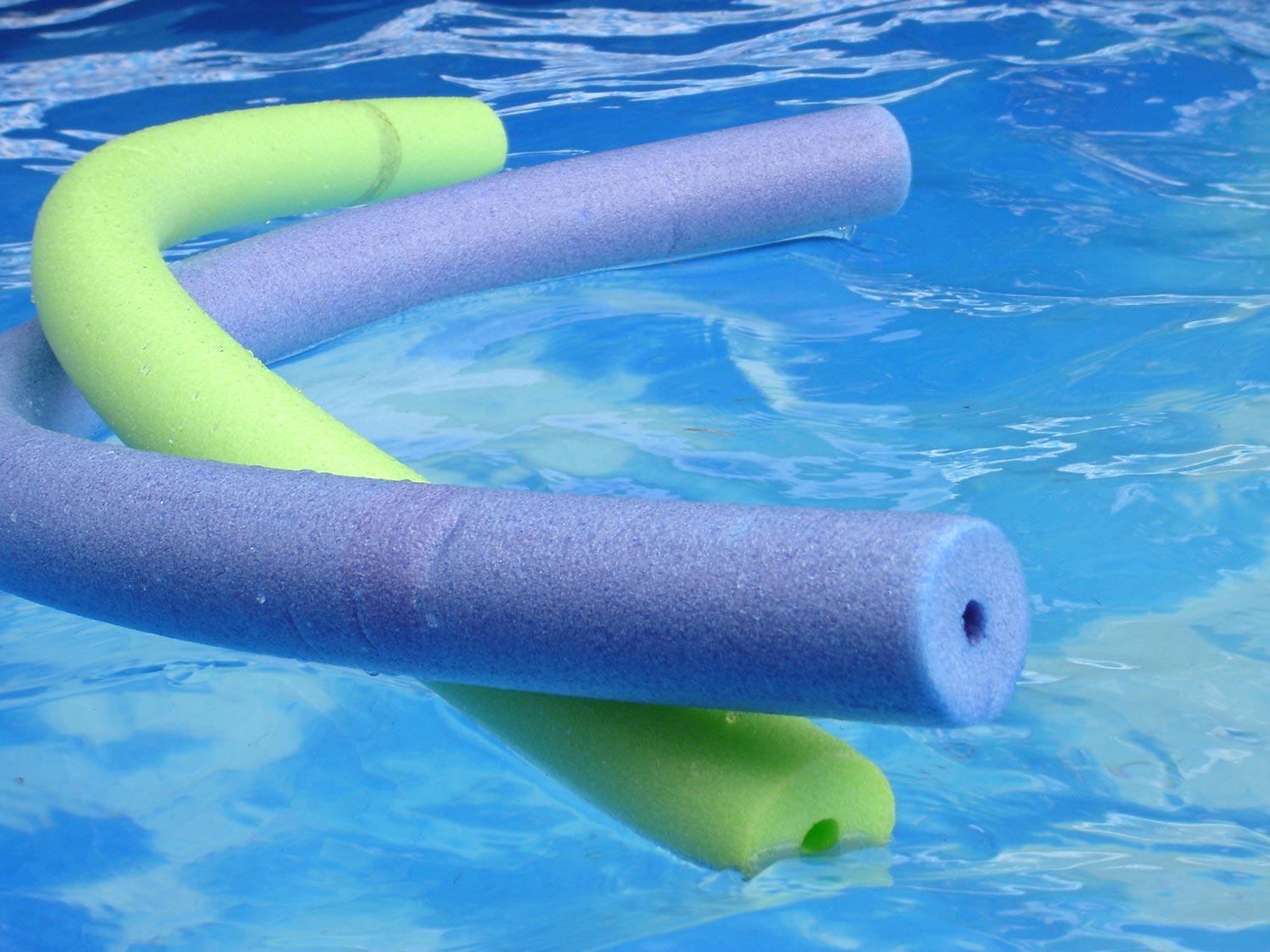
Yes, you can use pool noodles as insulators since pool noodles and foam insulators for pipes are similarly shaped. Not only that, the foam of pool noodles works just the same as insulating foam.
The low density of pool noodles makes them able to float on the surface of the poo; they are even used as a floatation device. This is explained through water displacement. The weight of the water that is displaced by something floating in it is equal to the lifting force.
This is also a cheaper alternative as you do not have to buy insulating foam. You can easily find pool noodles as most people throw them away after using them a couple of times. You can recycle these for insulating purposes.
Should outside pipes be insulated?
All pipes that have parts that are exposed outside have the potential to be affected by frigid temperatures (even gas pipes). This is the main reason why they should all have some sort of protection from freezing elements.
That is why you should insulate all outside pipes. Not only will this protect you from repair costs but also prevents interruption of use, as we mentioned earlier on.
What is the best insulation for outside pipes?
There are many ways to insulate your pipes outside; it all boils down to your preference and budget when choosing them. Some insulating systems also work better with specific types of piping, so you should consider this fact.
For example, glass wool insulation is mostly used for commercial buildings as it also has good noise dampening properties. While rubber insulation is famous for affordability and being supportive when pipes expand if it is hot during insulation.
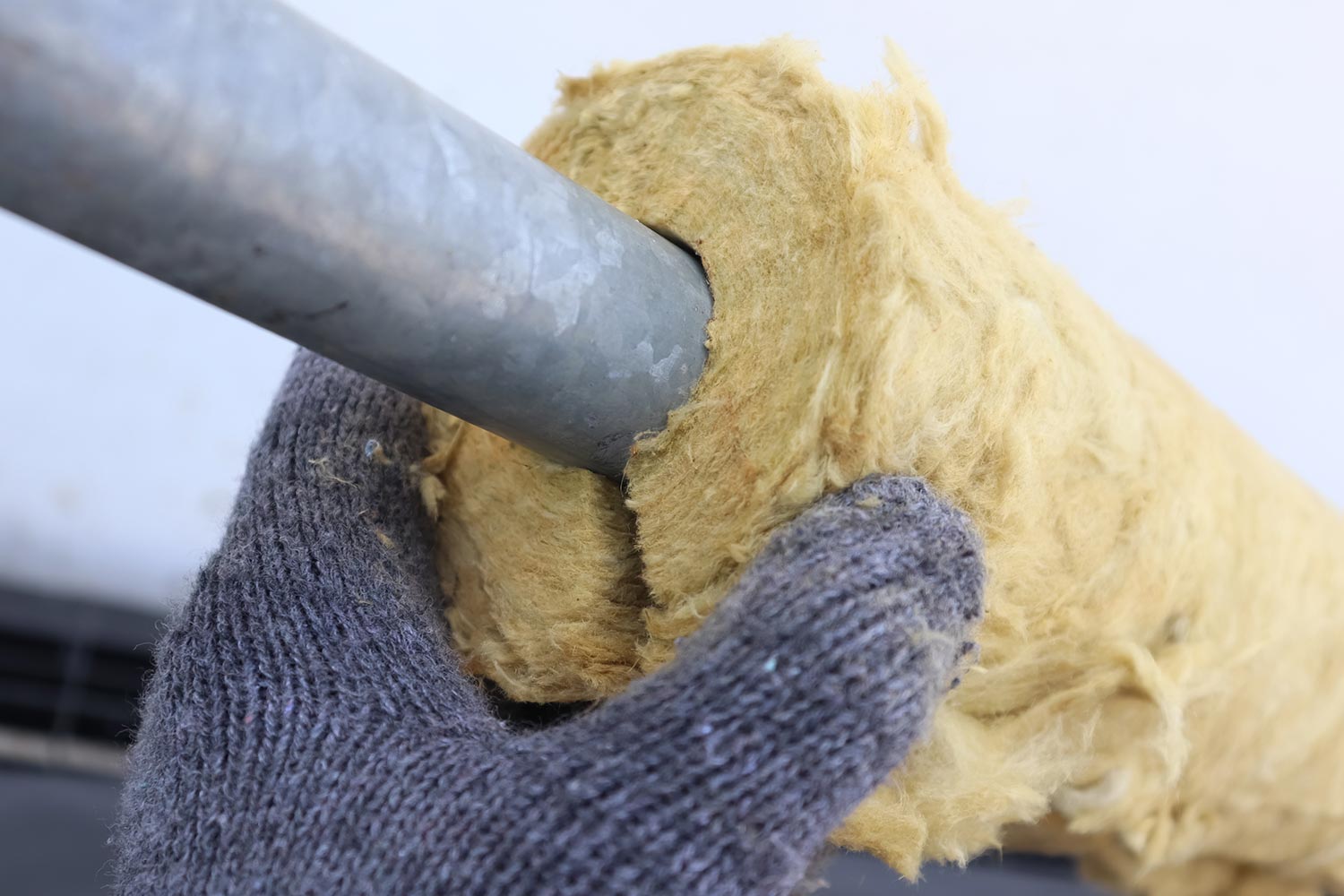
Do I need to put antifreeze in my pool lines?
If you have properly insulated your pipes or winterized your pool, you don't have to apply antifreeze when closing up your pool. This would be a good option if you have failed to properly insulate your pipes or added no insulation at all.
But you might ask, why do I have to insulate my pool when I can just put antifreeze in my pipes every winter? Well, this has to do with expelling the antifreeze if you are about to use the pool again.
Antifreeze is a chemical that can be very dangerous when contacted by a perso, and thiss is especially a hazard if there are kids around. Antifreeze is also very bad for the environment asits toxicityt makes the ground acidic and very hazardous if it is spilled on it.
Having your pipes properly insulated is a safer way of preventing your pool pipes from freezing. It is also a one-time application as you can have this insulation on your pipes even during summer.
But choosing the proper type of insulation for your pipes is also imperative as over insulating can cause very hot water temperatures for your pipes, which can cause skin injuries if contacted directly.
Even though such accidents are not that common, it is best to consult with a professional about what type of insulation best works for your pipes. This way, you can achieve optimum protection and at the same time avoid accidents caused by over-heated pipes.
Does foam pipe insulation burn?
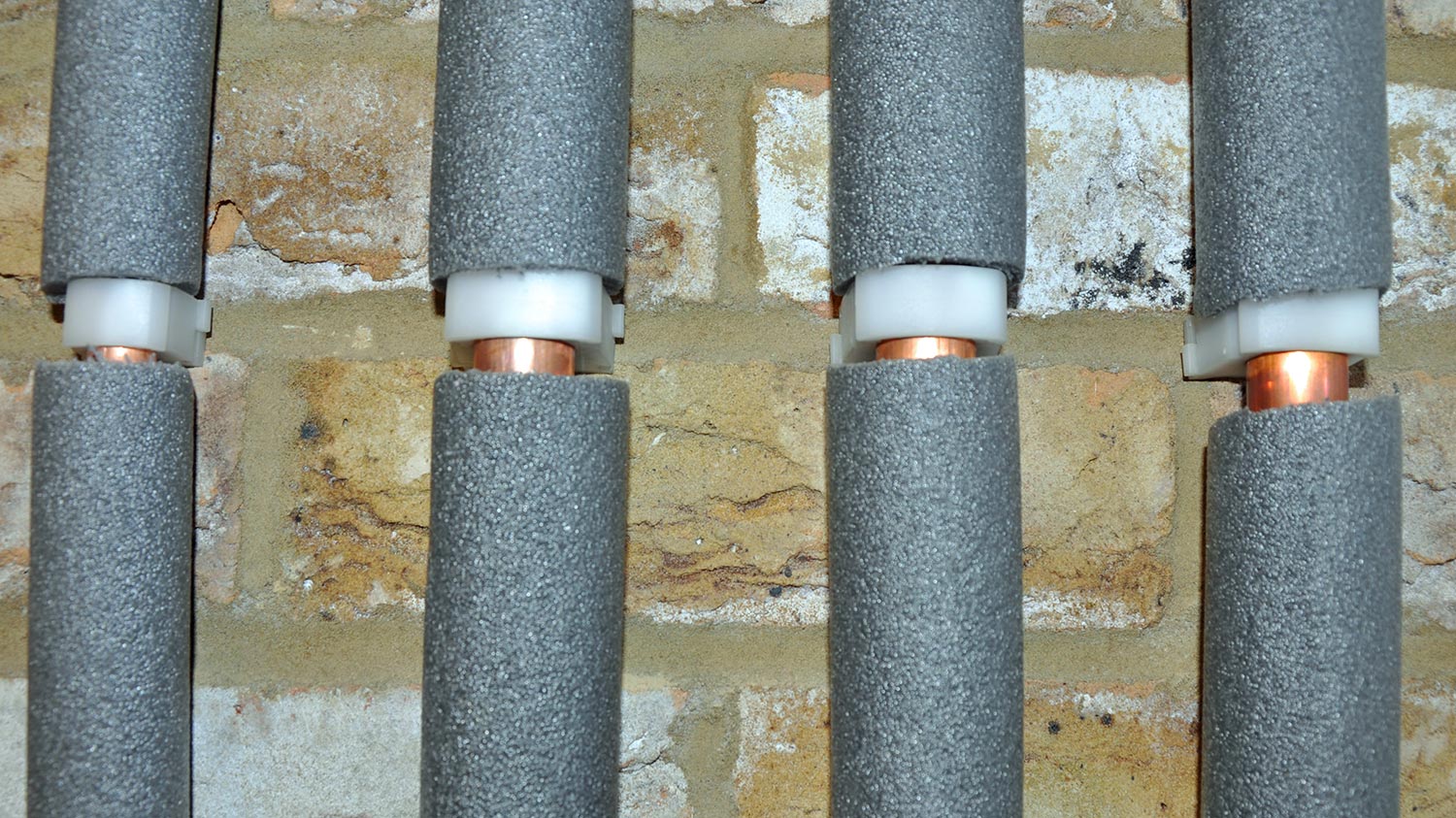
Foam pipe insulation is either made of polyethylene or neoprene and classified as combustible materials. Though some foam pipes can self extinguish when catching fire, they are still flammable and can cause a fire hazard, especially if they are close burnable objects.
Even though they are not common causes of fire, especially if they are holding the water supply, proper observation of fire hazards is imperative, as fire can still travel through the covered pipes and affect other parts of your house. Safety should always be our main priority.
In summary
Insulating your pool pipes is fairly easy and can be a DIY project. If you are having trouble doing it yourself, you can hire a professional to do it, as this will be a faster and more efficient way.
Failing to do any type of insulation for your pool pipes can result in much larger problems like a cracked pump and leaking pipe that can interrupt usage and drive up your water bill.
A very cheap way of insulating your pipes is by using pool noodles as a substitute for foam insulators, all the more reasons why a wrapped pipe is better than one that isn't.
Here are some related articles we previously wrote that might interest you, try them and have a read.
How Long Do Pool Heaters Last?
